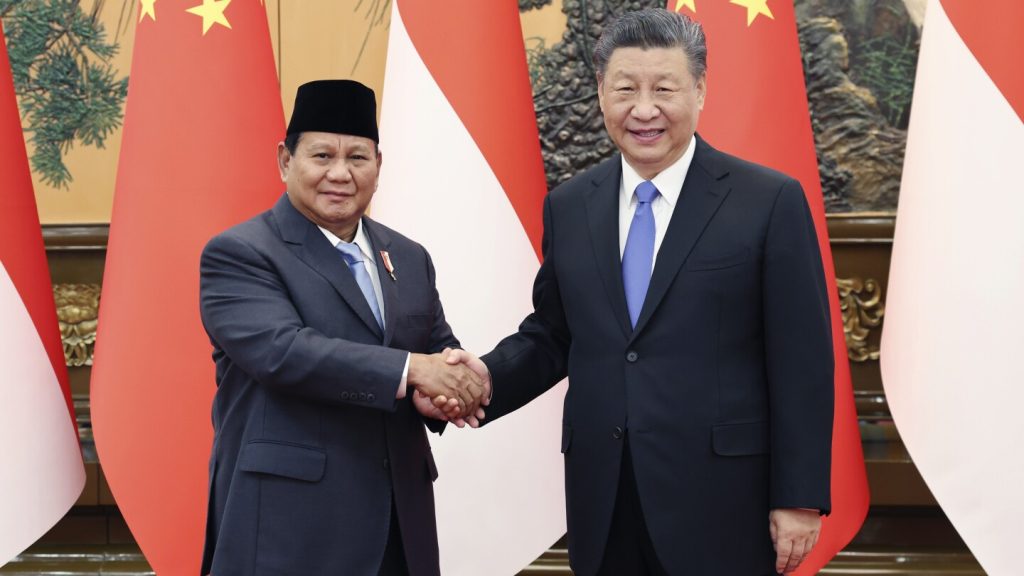Indonesian President-elect Prabowo Subianto reaffirmed his country’s commitment to maintaining a friendly relationship with China during his meeting with Chinese leader Xi Jinping in Beijing. Subianto, who is set to succeed Joko Widodo in October, selected Beijing as his first official visit destination after winning the election in February. This move highlights the strong ties between Indonesia and China amidst escalating tensions in the South China Sea. Subianto’s upcoming visit to Japan also suggests that Indonesia will continue to pursue a balanced approach between Beijing and the United States’ allies in the region.
Subianto described China as Indonesia’s “strong cooperative partner” and expressed his willingness to continue Widodo’s friendly policy towards Beijing. The president-elect emphasized the importance of cooperation in various fields such as the economy, trade, and poverty alleviation. During his visit, Subianto is scheduled to meet with Chinese Premier Li Qiang and Defense Minister Dong Jun before departing on Tuesday. China has become Indonesia’s largest trading partner under Widodo’s leadership, with significant investments in infrastructure projects like the Jakarta-Bandung high-speed railway and Cirata, Southeast Asia’s largest floating solar power project.
Chinese President Xi Jinping welcomed Subianto’s commitment to strengthening ties with China and highlighted the successful cooperation between the two countries, particularly citing the Jakarta-Bandung railway as a prime example. Xi expressed China’s willingness to deepen maritime cooperation with Indonesia and provide support for poverty reduction initiatives. Indonesia has maintained a neutral stance amidst the territorial disputes in the South China Sea, unlike the Philippines, which has increased security ties with the United States under President Ferdinand Marcos Jr.’s administration, diverging from the China-friendly policy of his predecessor Rodrigo Duterte.
Tensions between China and the Philippines have escalated, leading to high-seas confrontations and concerns of a potential conflict that could involve China and the United States. The U.S. has reiterated its commitment to defend the Philippines, its oldest treaty ally in Asia, in the event of an armed attack in the South China Sea. The overlapping claims of China, the Philippines, Vietnam, Malaysia, Taiwan, and Brunei in the strategically important waterway have resulted in ongoing disputes. China has refused to acknowledge a 2016 international arbitration ruling that rejected its extensive claims based on historical grounds, further complicating the situation in the region.
The meeting between President-elect Prabowo Subianto and Chinese leader Xi Jinping underscores Indonesia’s efforts to maintain strong ties with China while navigating regional complexities and power dynamics. By prioritizing cooperation in various sectors and emphasizing mutual benefits, Indonesia aims to uphold diplomatic relations with both China and other regional partners. Subianto’s visit to Japan following his trip to Beijing indicates Indonesia’s intention to pursue a balanced approach in its foreign policy, seeking to leverage relationships with key players in the region while safeguarding its national interests. The outcomes of these diplomatic engagements will shape Indonesia’s strategic positioning in the evolving geopolitical landscape of Southeast Asia.


